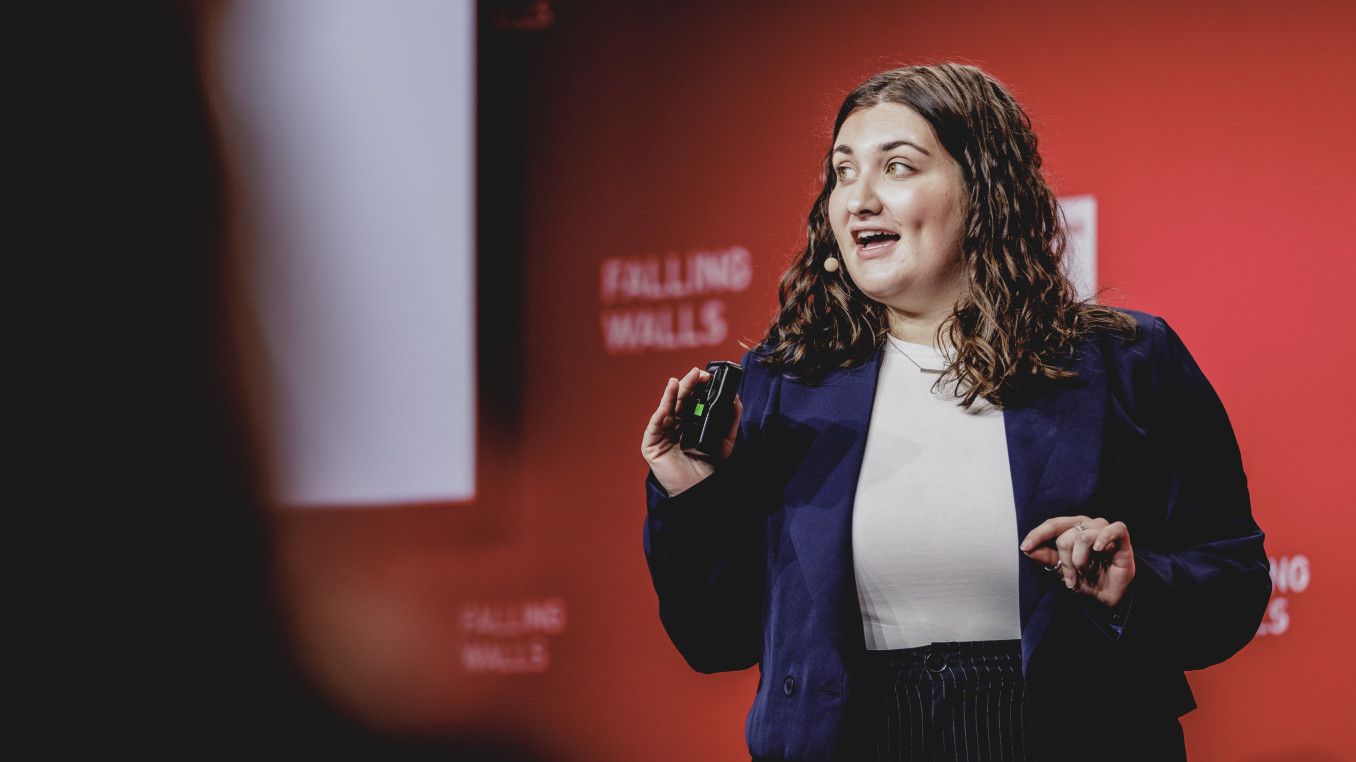Breaking the Wall of Treatment for Alzheimer’s
Breaking the Wall of Treatment for Alzheimer’s
Global Call 2025 Finalist Interview: Life Sciences
Ali Rezai, MD, is a functional neurosurgeon and neuroscientist whose career has been dedicated to advancing the care of people with neurological and mental health conditions. Dr. Rezai is the Executive Chair of the Rockefeller Neuroscience Institute (RNI), Professor of Neurosurgery, John D. Rockefeller IV Chair in Neuroscience and Associate Dean of Neuroscience at West Virginia University (WVU). Dr. Rezai was recruited to WVU in 2018 to build a new comprehensive patient care, education and research Neuroscience Institute. Since 2018, he has developed the RNI into a global leader in neuroscience with 7 departments, over 300 full time faculty and 2,300 team members. In 2024, the RNI team provided neurological and mental health care with over 300,000 annual patient visits from all 50 states and 15 countries.
Dr. Rezai’s clinical practice focuses on neuromodulation for movement disorders, chronic pain, brain injury and neurobehavioral disorders. His research focuses on rapid cycle innovation and application of neuromodulation technologies for the treatment of Parkinson’s, brain/spinal cord injury, addiction and Alzheimer’s. Rezai is the author of over 250 publications with a h-index of 99, appearing in journals such as Nature, New England Journal of Medicine, JAMA Neurology, Lancet Neurology and PNAS. He has been the leader in neurosurgical innovations for deep brain stimulation and focused ultrasound and holds 65 issued U.S. patents. He has served on the editorial board of multiple journals, edited two books, and has been the principal or co-investigator on seven National Institute of Health (NIH) grants.
Dr Rezai is the past president of the Congress of Neurological Surgeons (CNS), the North American Neuromodulation Society (NANS), and the American Society of Stereotactic and Functional Neurosurgery (ASSFN). He has received numerous awards including the Cleveland Clinic and Ohio State University Innovator of the Year, the NANS Lifetime Achievement Award, the NIH HEAL Award for Excellence in Research and the Ellis Island Medal of Honor.
Dr. Rezai is a frequent speaker at medical, scientific and tech conferences and has presented his research to the President of the United States, members of the US Congress, Governors, Secretary of the HHS and NIH Directors. His research has been featured in The Wall Street Journal, The New York Times, The Washington Post, Financial Time, 60 Minutes, BBC, CBS, NBC, ABC, CNN, PBS, Good Morning America and The Today Show.
Which wall does your research or project break?
Our research breaks the wall of therapeutic delivery to the brain by overcoming one of the most formidable barriers in neuroscience: the blood-brain barrier (BBB). The BBB is an intrinsic structural barrier of the blood vessels of the brain and functions as a protective barrier between the circulating blood and brain tissue. It allows for the passage of small molecules and nutrients to the brain but limits the passage of bacteria, pathogens, toxins and harmful substances. The BBB also limits larger molecules and most therapeutics from readily crossing from the blood to the brain.
The BBB is a challenge to the effectiveness of treatments for neurological diseases, preventing over 98% of therapeutics from readily getting access to the brain from the blood vessels. This wall of the blood-brain barrier has stood for decades as a major obstacle in nervous system drug treatments for various conditions such as brain tumours, Parkinson’s disease, Alzheimer’s disease (AD) and other neurological and psychiatric disorders.
What is the main goal of your research or project?
Our research goal is to facilitate treatments for Alzheimer’s disease and other neurodegenerative conditions by using focused ultrasound technology to open the blood-brain barrier (BBB) to increase the penetration of drugs to the brain. This 2-hour non-surgical outpatient procedure opens the BBB in any brain region in a safe, targeted and reproducible fashion, allowing for potential accelerated delivery of drugs from the blood vessels into the brain. Focused ultrasound-guided BBB opening can also allow for earlier diagnosis opportunities via improved crossing of biomarkers from the brain to the blood.
Traditionally, Alzheimer’s treatments have focused on symptomatic relief with limited impact on disease progression. New anti-beta amyloid antibody infusion therapies such as aducanumab, lecanemab and donanemab are transforming therapeutic options for patients with AD. Multiple placebo-controlled randomised clinical trials have demonstrated the clearance of beta amyloid plaques and the slowing of the progression of symptoms in patients with AD receiving long-term antibody infusions. These systemic antibody therapies are effective but have limitations and side effects, and the onset of amyloid-related imaging abnormalities (ARIA).
What advice would you give to young scientists or students interested in pursuing a career in research, or to your younger self starting in science?
My advice to young scientists and students pursuing a research career is to seek strong mentorship and work closely with your mentors to master the fundamentals of science and research. Focus on developing a clear research question, designing a study to answer it, conducting your methods with consistency and care, analyzing the outcomes and effectively communicating your findings. This is a lifelong process of learning and refinement and discipline in this regard will serve you well throughout your career.
Stay curious, passionate and dedicated. Pay close attention to detail, work hard and persevere—because failure is not only common, it’s expected. Each failure is an opportunity to learn and improve. Collaboration and mentorship are also essential. Surrounding yourself with experts and diverse perspectives will help you grow and see problems in new ways.
Finally, go where the need and the opportunity are. Breakthroughs don’t just happen in the biggest cities or most famous labs; they happen where talented, mission-driven people commit to making a difference. Don’t chase prestige—chase impact.
What inspired you to be in the profession you are today?
Many life experiences and mentors have inspired me throughout my career, but the greatest source of inspiration has always been my patients. Witnessing the suffering caused by disease stresses the need for research and innovation. The opportunity to contribute to meaningful progress continues to be the primary driver of my work.
What impact does your research or project have on society?
Focused ultrasound blood-brain barrier opening has tremendous potential for the future of targeted brain therapeutics. It redefines how we think about neurological drug delivery by allowing for a non-invasive, outpatient and highly targeted solution that could expand the horizon for safety and efficacy of drug therapeutics for Alzheimer’s, Parkinson’s, brain tumors and other neurodegenerative or psychiatric diseases.
What is one surprising fact about your research or project that people might not know?
When people think of an ultrasound, they often picture it as a diagnostic tool—for example, monitoring a pregnancy or assessing heart function. Focused ultrasound is the next generation of this technology, representing a major innovation in non-surgical brain therapeutics. It uses energy from multiple ultrasound probes, precisely targeted to specific areas of the brain, to treat a range of neuropsychiatric disorders, including Parkinson’s disease, Alzheimer’s and addiction.
What’s the most exciting moment you've experienced over the course of your research or project?
Many moments have inspired and excited me throughout my career—there hasn’t been one single defining moment. What stands out consistently is seeing the impact our team’s work has on patients’ lives. Seeing a patient’s health improve as a result of our research and care is the most gratifying part of what we do.

